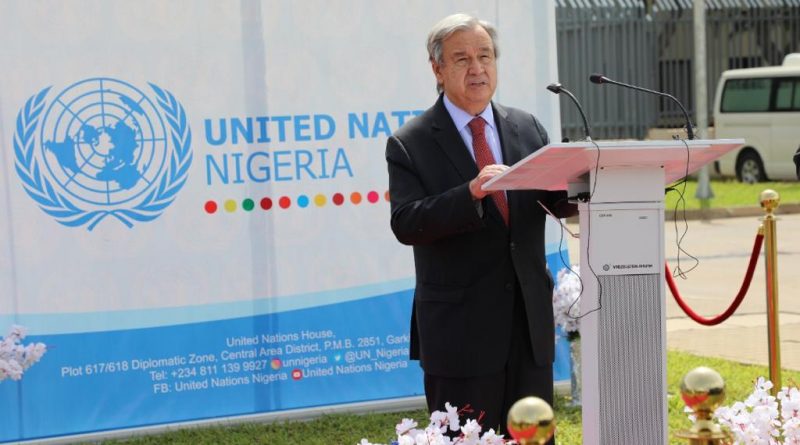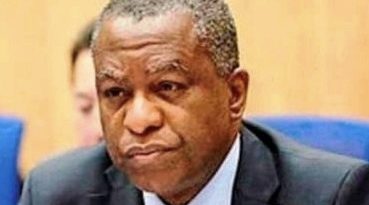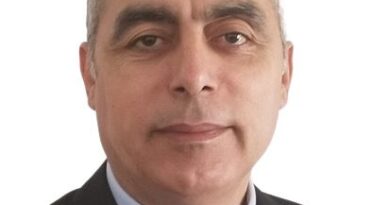UN Secretary-General Calls For Prosecution Of Terrorists
By Bukar Bolori
The United Nations Secretary-General, Antonio Guterres, has called for the prosecution of the attackers on the UN House in Abuja on August 26, 2011, saying perpetrators of terrorism in Nigeria must be held to account.
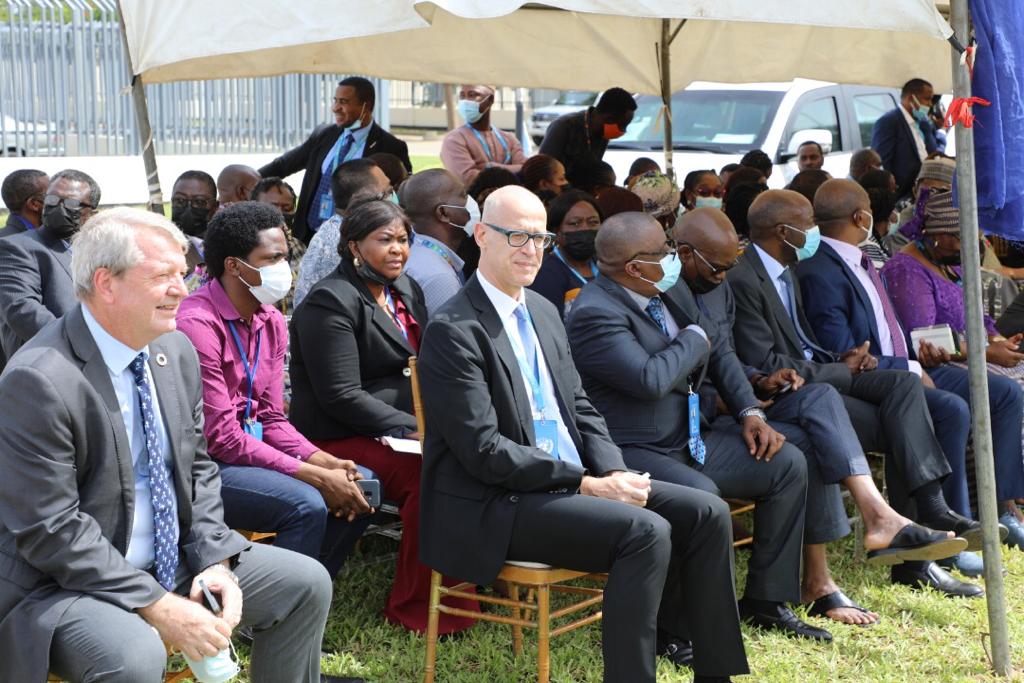
The UN Chief, who was in the country on a two-day visit, said on Wednesday after laying a wreath in honour of the victims of the August 26, 2011 attack by terrorists on the UN House, which claimed the lives of 23 UN staff and civilians and injured 16 others, that: “We remain steadfast in our commitment to support a peaceful Nigeria for all people.”
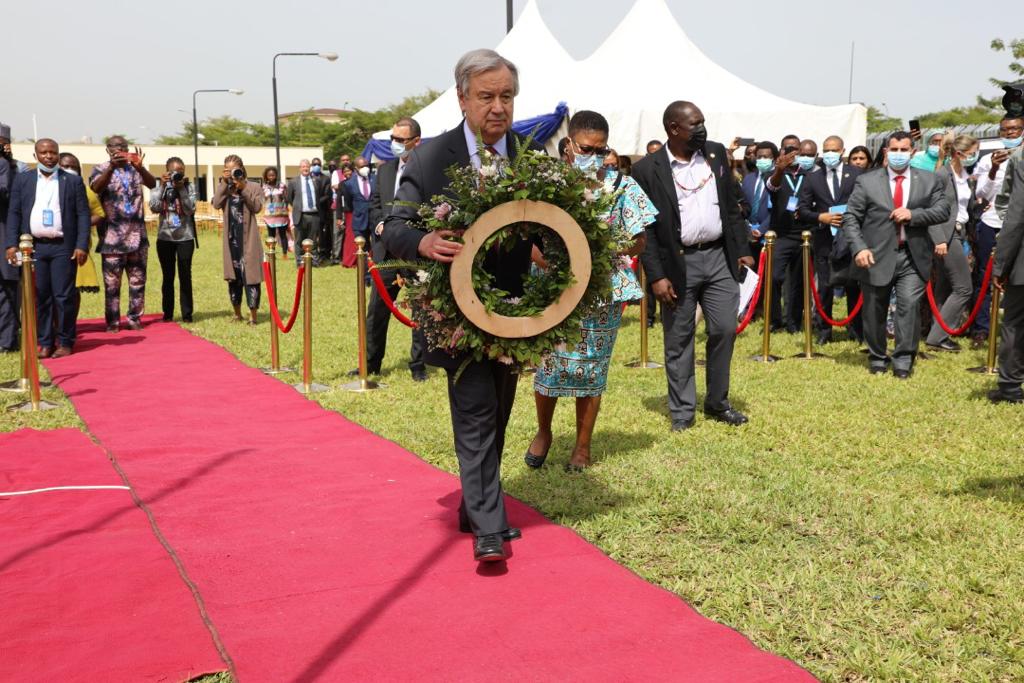
He said: “On that tragic day (August 26, 2011) an appalling terrorist attack on the UN House left 23 UN employees and civilians’ dead and 16 injured. Those staff members who lost their lives are heroes who proudly served Nigerians through the UN organizations.
“We encourage all Nigerians, who have endured similar violence in their own communities. In our victim-centered approach, perpetrators must be held accountable.”
Guterres also thanked the government of Nigeria for its support in repairing the UN House which has enabled the staff to return.
The UN boss had a succession of meetings with several groups, which included Minister of Women Affairs and Social Development, Mrs Pauline Tallen, members of the diplomatic corps, religious leaders, civil society organizations, women groups, people living with disabilities and others.
Speaking to reporters after meeting with the UN Chief, Catholic Archbishop Emeritus of Abuja, John Cardinal Onaiyekan, told reporters that his interaction with Guterres was on how to resolve the dilemma of a country full of talented people but facing a lot of problems.
“Nigerians are genuinely religious but we see around us so much corruption and outright wickedness,” he said.
The respected clergyman noted that it has become pertinent to interrogate how a nation that is rich but full of poor people, a nation that is full of talented people and yet hardly organized, even as he put that responsibility on the doorsteps of those in government.
He revealed that he told the UN boss that Nigerians “are not satisfied with how far the rulers are dealing with the issues concerning us, the issue of poverty, the issue of insecurity, and the issues of social services. The government tells us they are doing their best and we say that their best is not good enough. We believe we can do better.”
On the lingering issue of herders-farmer crisis, the Cardinal said since the last ten years, the government has been struggling to address the issue of armed herdsmen, which has created a lot of problems including displacement of farmers.
He said: “It seems the displacement is becoming permanent and the herders are taking over the farm lands and the government still claims they have no way of bringing things back to normalcy. The result is that farmers can no longer farm and we are facing the prospects of famine because the parts of Nigeria that use to produce a lot of food, many of them can no longer farm.
“We must admit that the old traditional method of cattle rearing is no longer sustainable in this day and age, because it has become a recipe for chaos. We must learn from how other people rear cattle and produce a lot of meat without disturbing anybody. It can be done and if it is not done it must be that some people are not ready to do the right thing.”
The Cardinal also said those presently aspiring to become the president of the country in 2023 should be prepared to tell Nigerians what they intend putting in place to solve the present crises being faced by the country.
He noted that who should rule the nation come 2023 should be elected based on finding solutions to the numerous problems the nation is facing.
A Professor of Law at the University of Nigeria Nsukka, Joy Ngozi Ezeilo, who met the UN Chief with her group, said: “We discussed the problems and the status of women in Nigeria and how he can help us to hold our elected officials to account, especially when it comes to gender parity and women participation in politics.
“We also discussed issues around affirmative action, issues around elimination of all forms of violence against women and we hope that with his visit, he can help raise the voices of the Nigerian women especially in demanding for greater representation of women in governance.”

